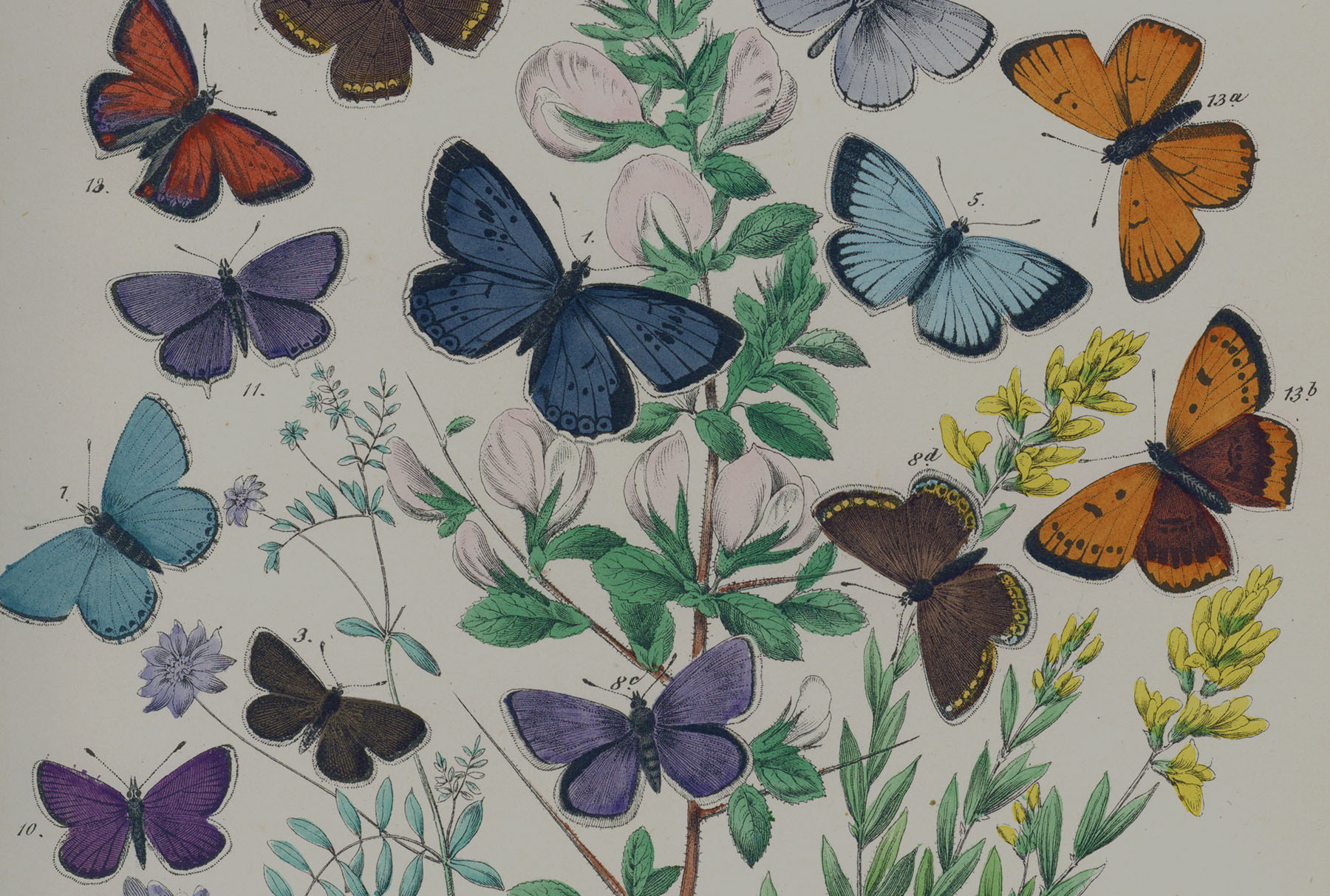Michael Chaplin on the Chaplin (Sid) Archive
Collected Voices
Sid Chaplin worked at the Dean and Chapter Colliery in Ferryhill until 1948 when he was offered a post as a writer on the National Coal Board's publication Coal. In 1957 he was offered a new post as Public Relations Officer for the National Coal Board. His early writing career was established by publication during the Second World War of poems and stories in contemporary literary magazines, principally Penguin New Writing.
Sid Chaplin’s first book was a collection of short stories, The Leaping Lad (1946), which won an Atlantic Award for Literature in 1946. This was shortly followed by Chaplin’s first novels My Fate Cries Out (1949) and The Thin Seam (1950). In 1960 he published the novel The Big Room, followed by two critically acclaimed novels about working class life in the city by the Tyne, The Day Of The Sardine (1961) and The Watchers And The Watched (1962). The novels Sam In The Morning (1965) and The Mines Of Alabaster (1972) followed, and in the early 70s two books of essays based on weekly columns written for The Guardian in the 1960s, The Smell Of Sunday Dinner and A Tree With Rosy Apples.
Towards the end of his life, Sid Chaplin wrote two final books of short stories, On Christmas Day In The Morning (1978) and The Bachelor Uncle (1980). In the 1970s he contributed to the successful BBC drama When The Boat Comes In and the series Funny Man for Thames Television and The Paper Lads for Tyne Tees Television. Sid Chaplin was a regular and accomplished broadcaster and was a contributor to local and national newspapers and other publications throughout his life.
Sid telling stories to his younger siblings
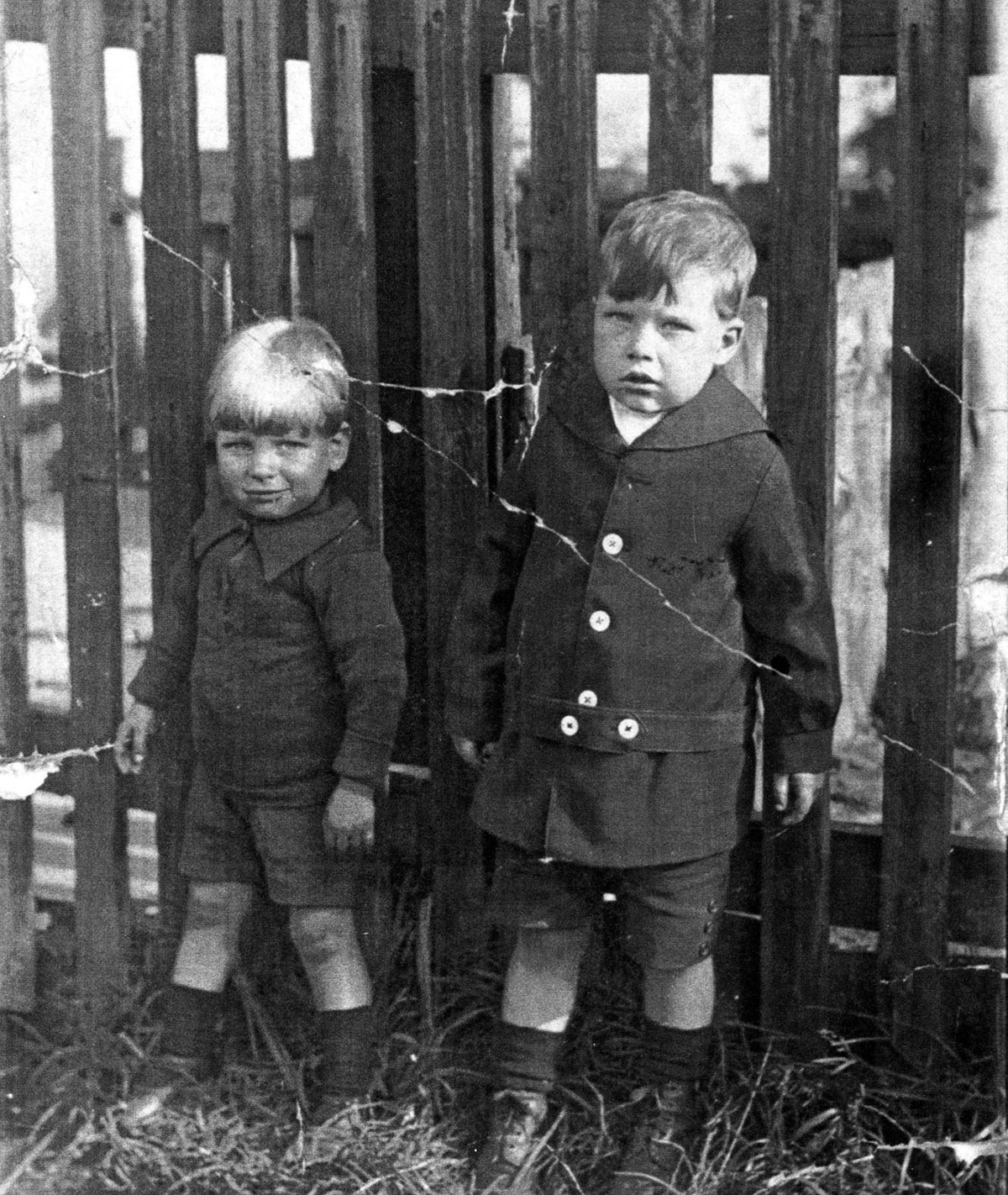
Sid's early working life as a baker and apprentice blacksmith
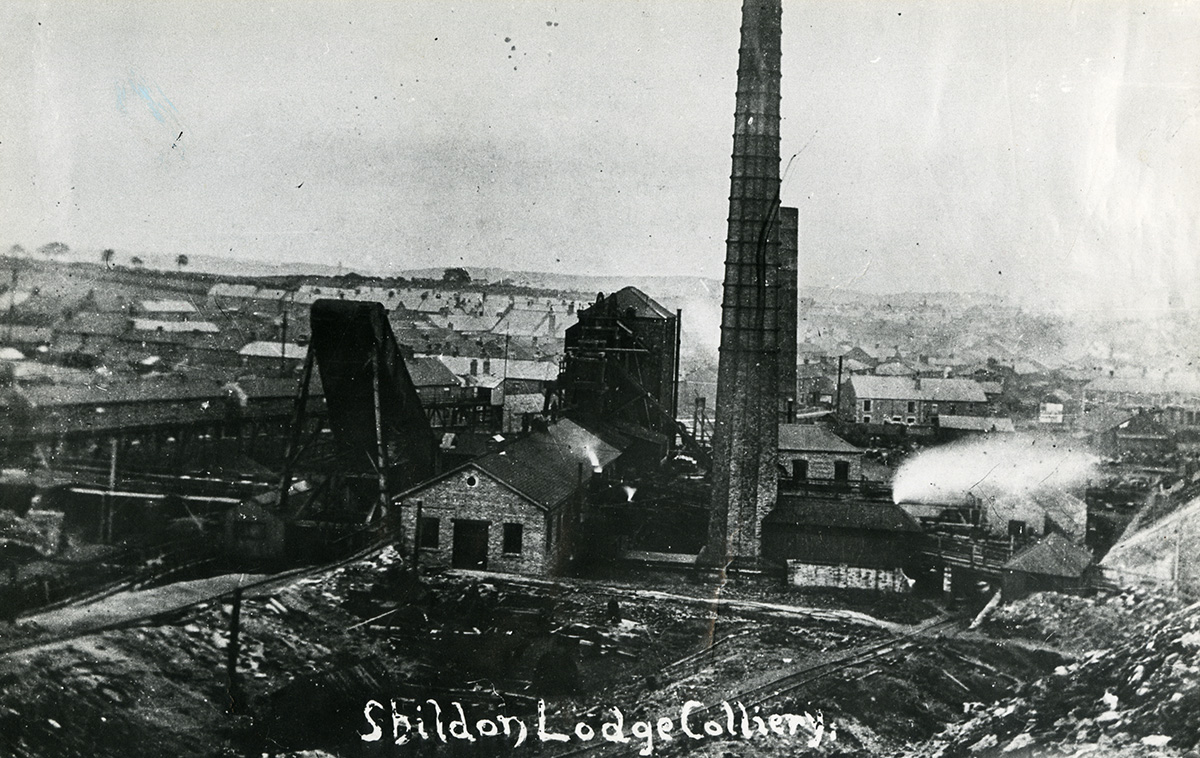
How Sid first met his wife Rene
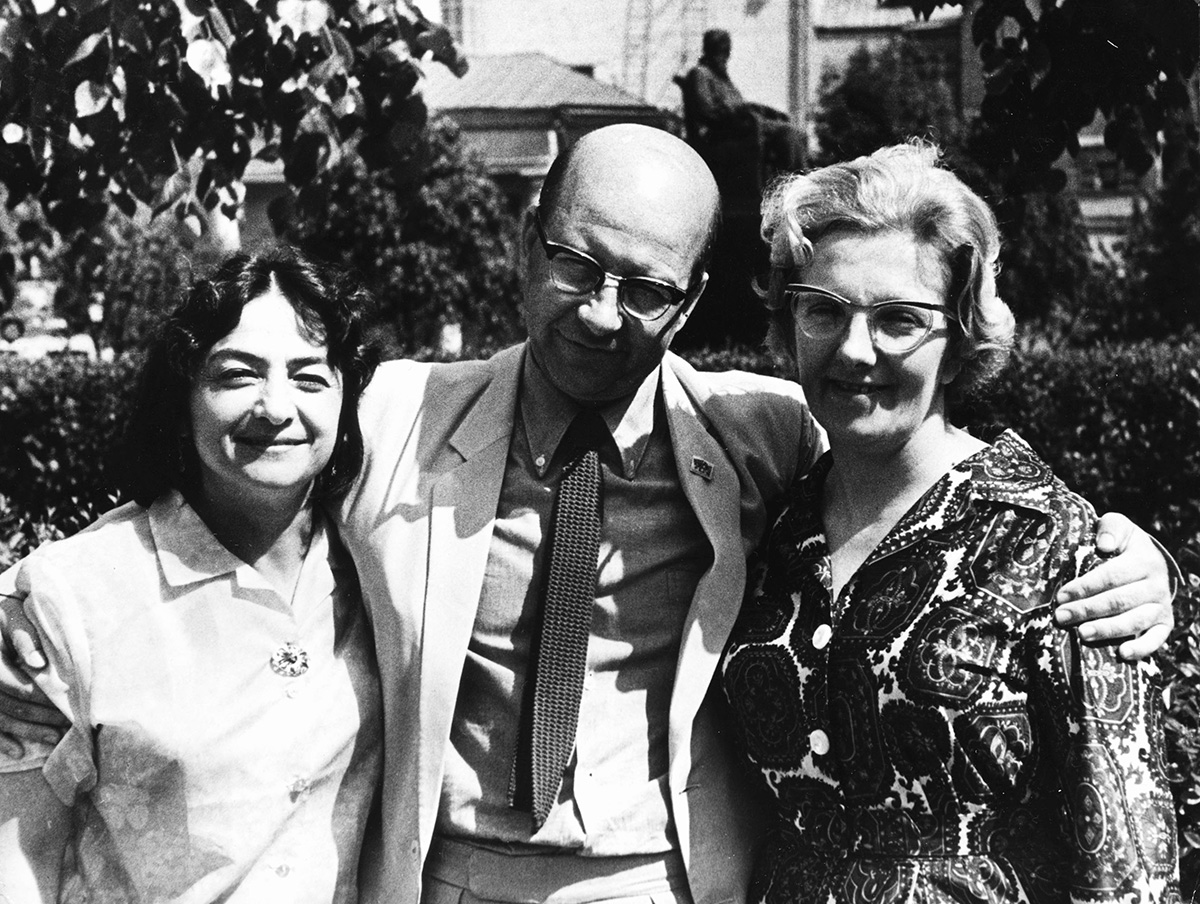
The publication of the Leaping Lad
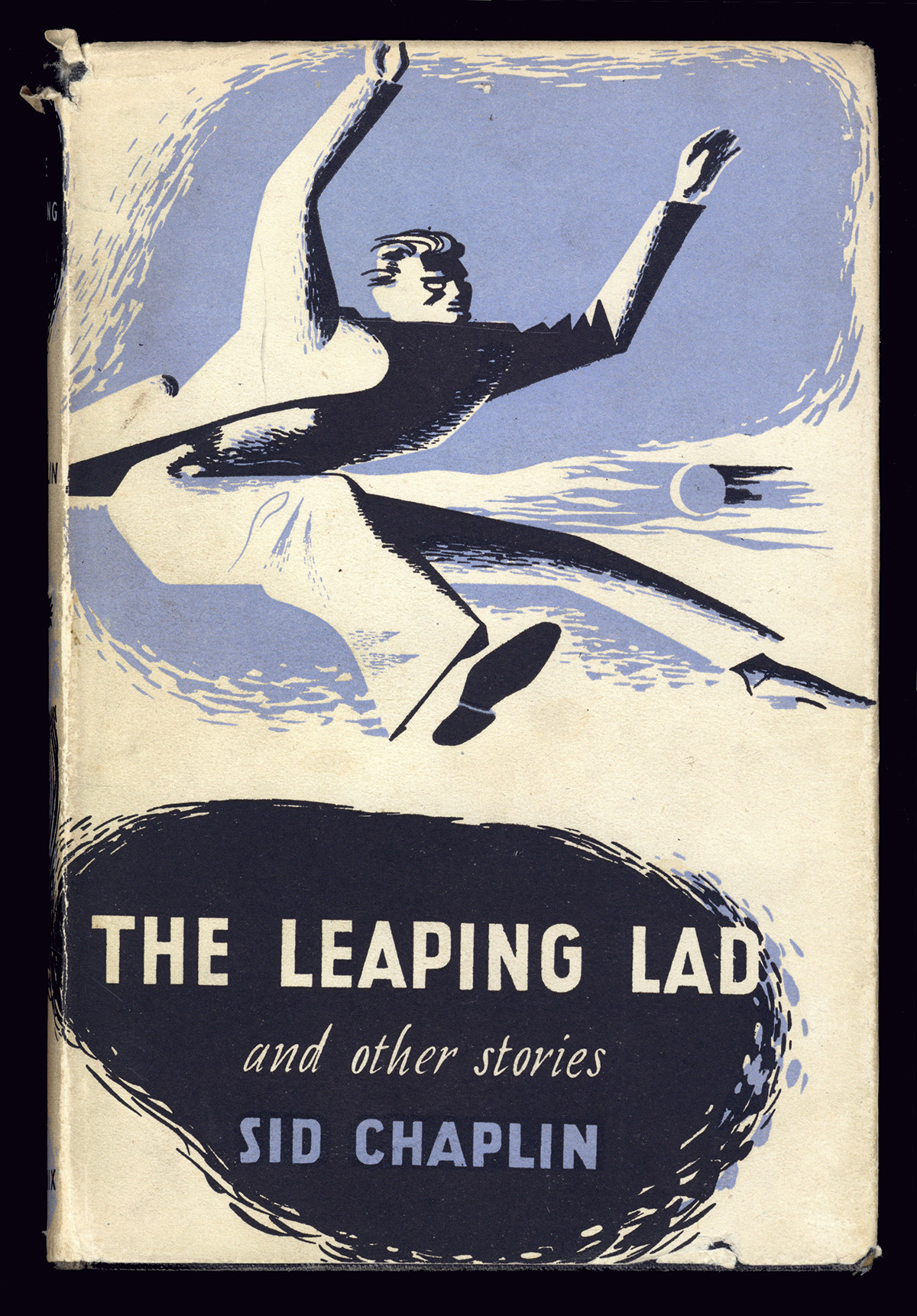
Sid taking a job at coal magazine and moving to London
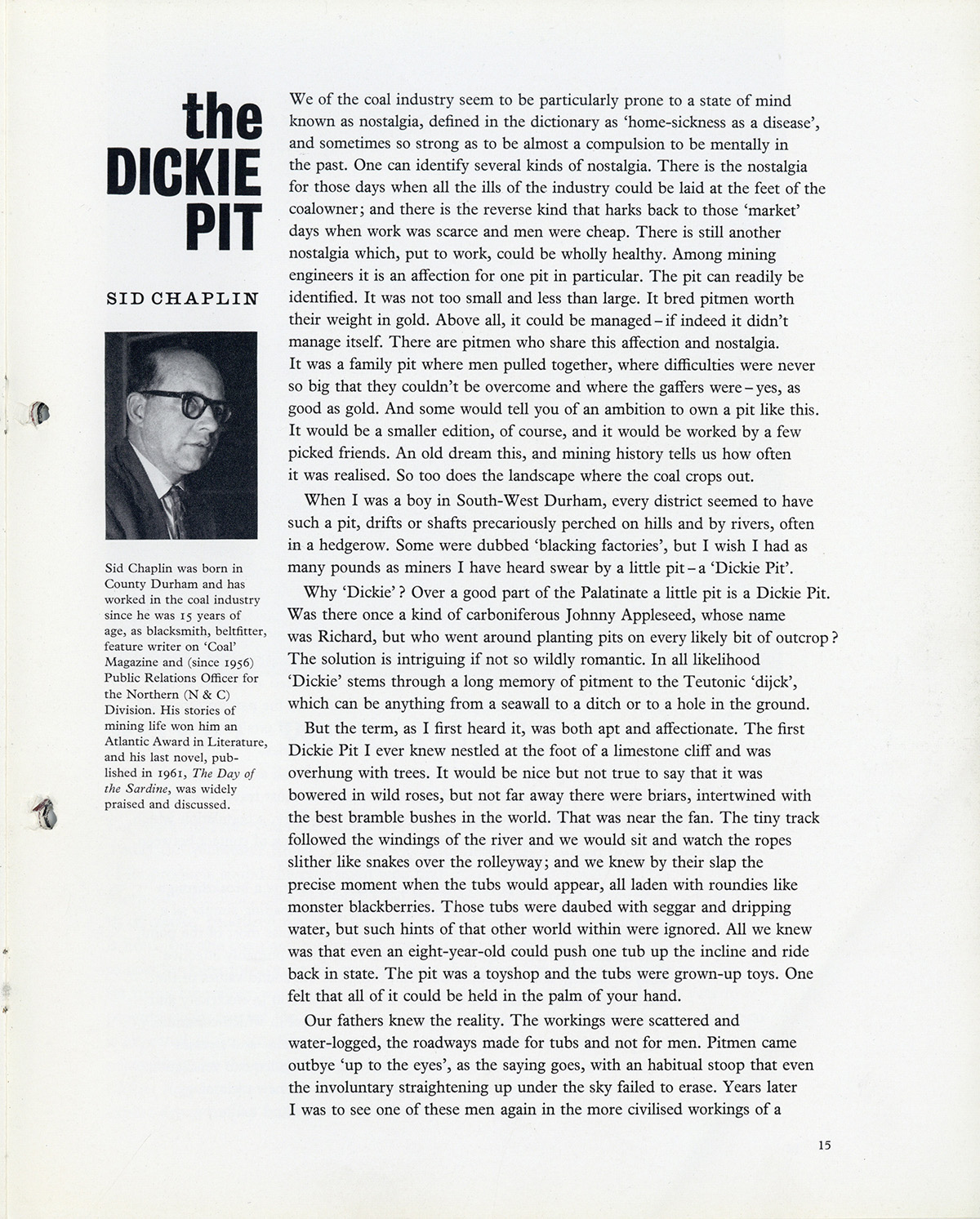
Sid's walks as research for his writing
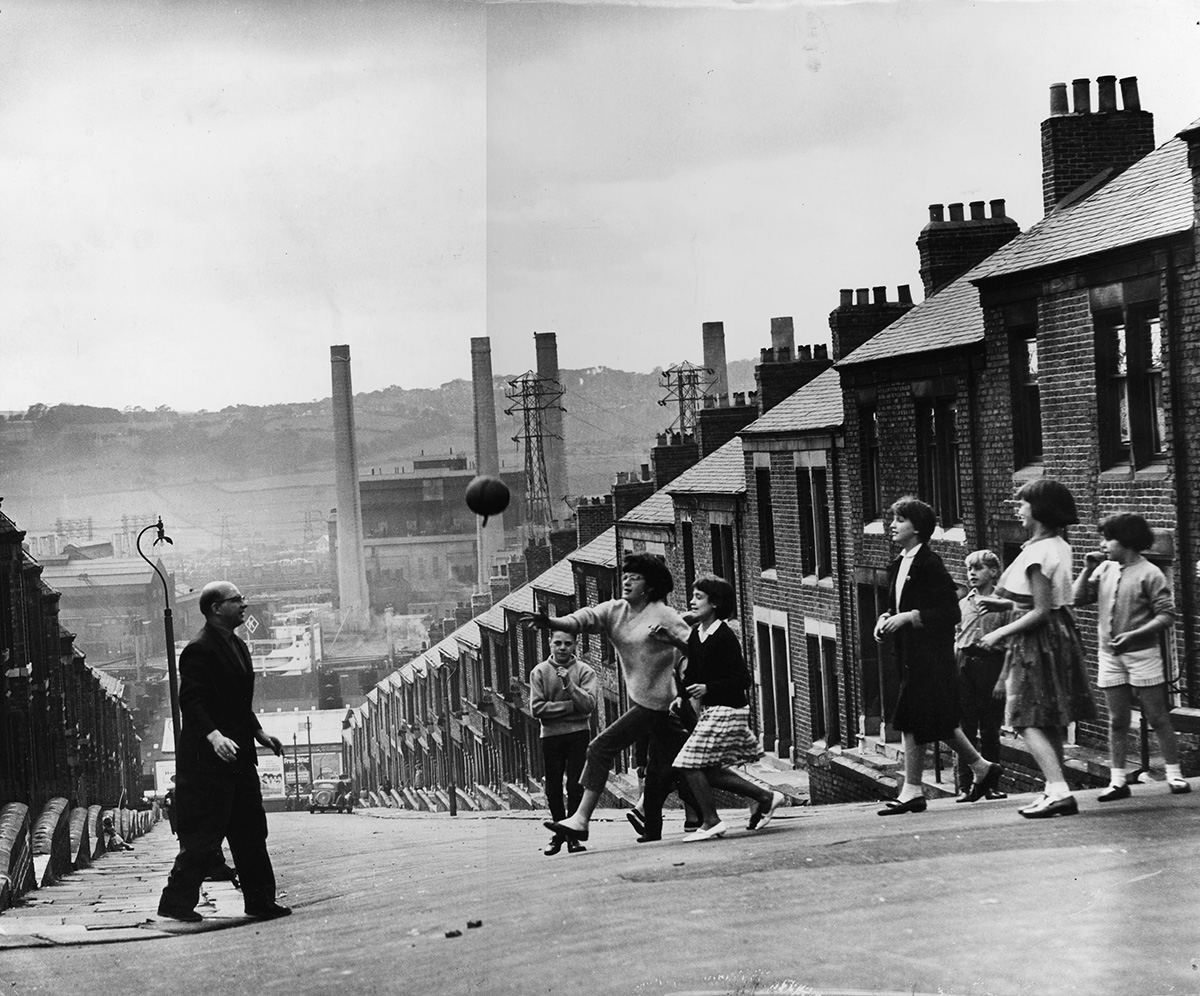
Sid's busy work schedule
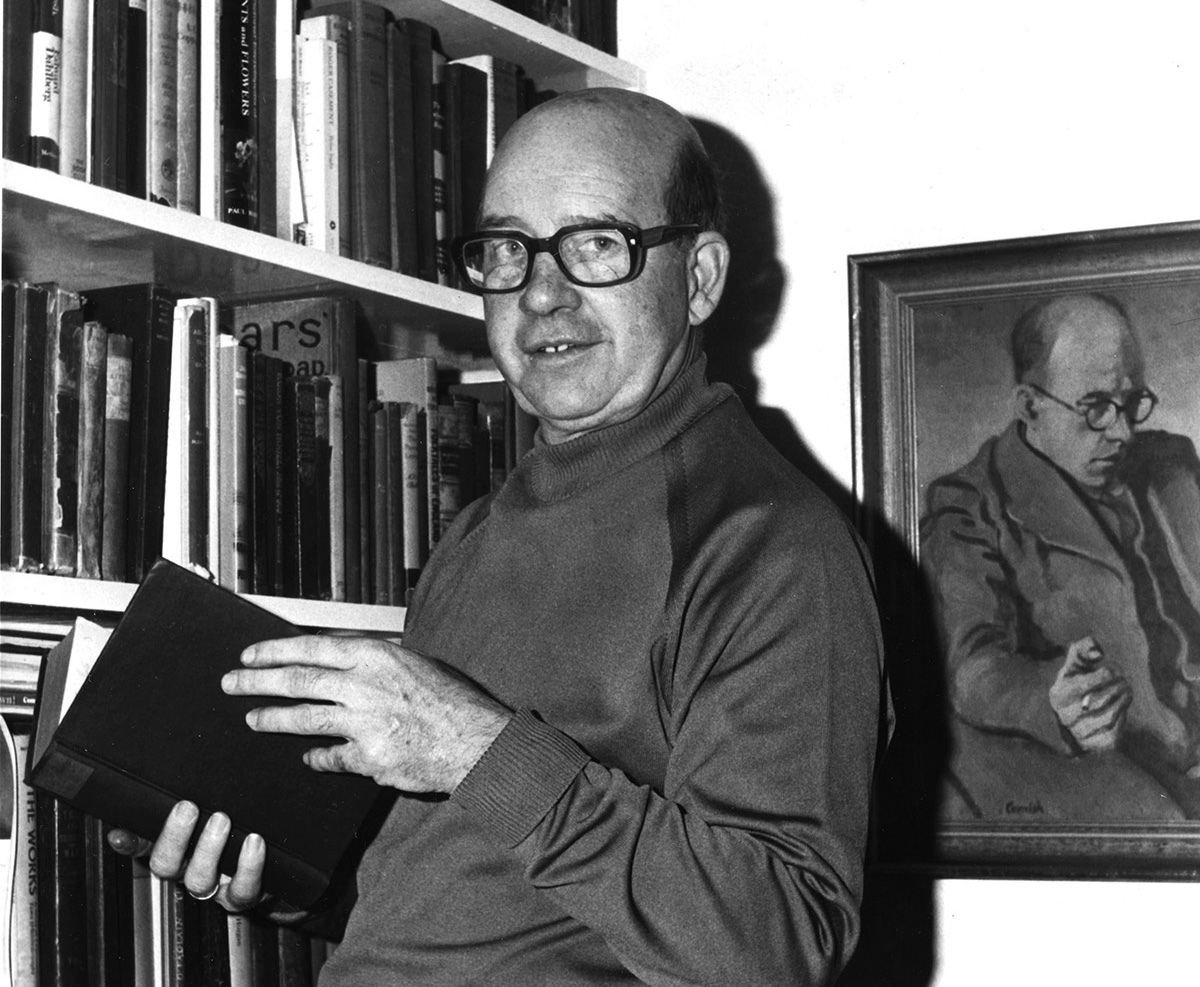
Sid taking his son Michael to Jesmond cinema
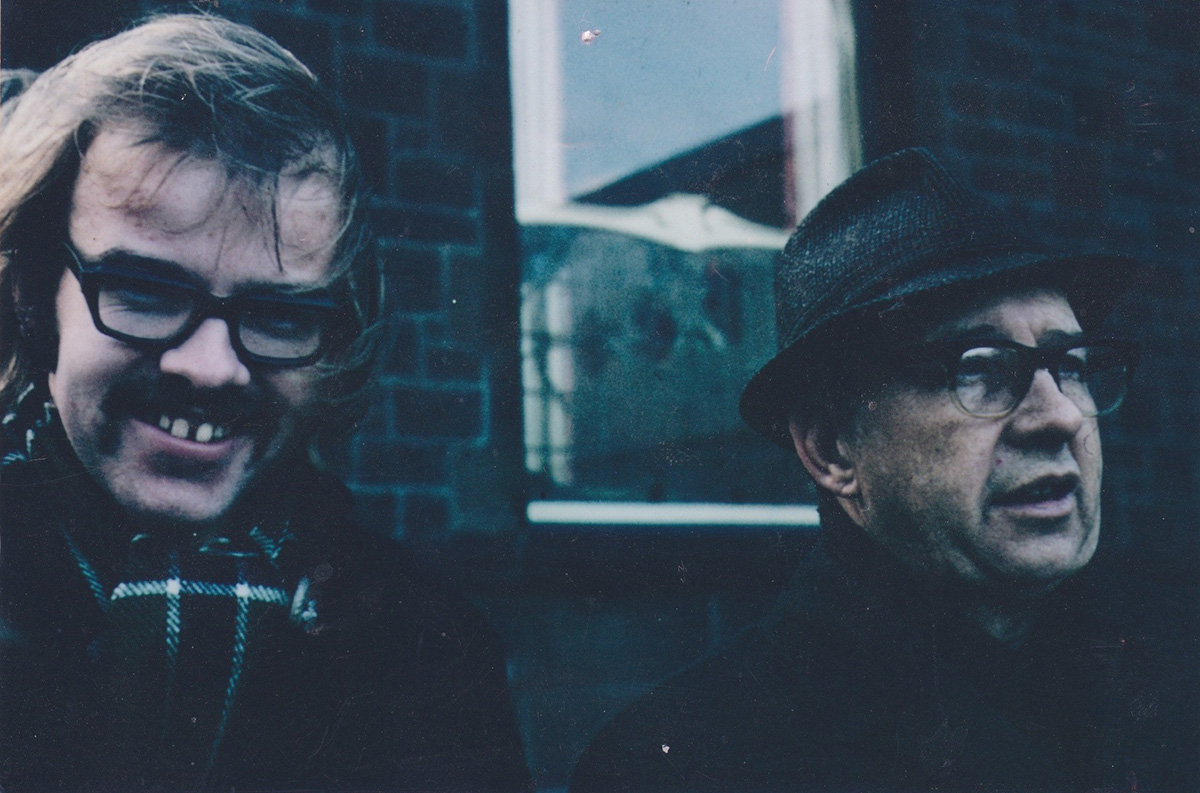
Sid's reaction to his son Michael being accepted to Cambridge University
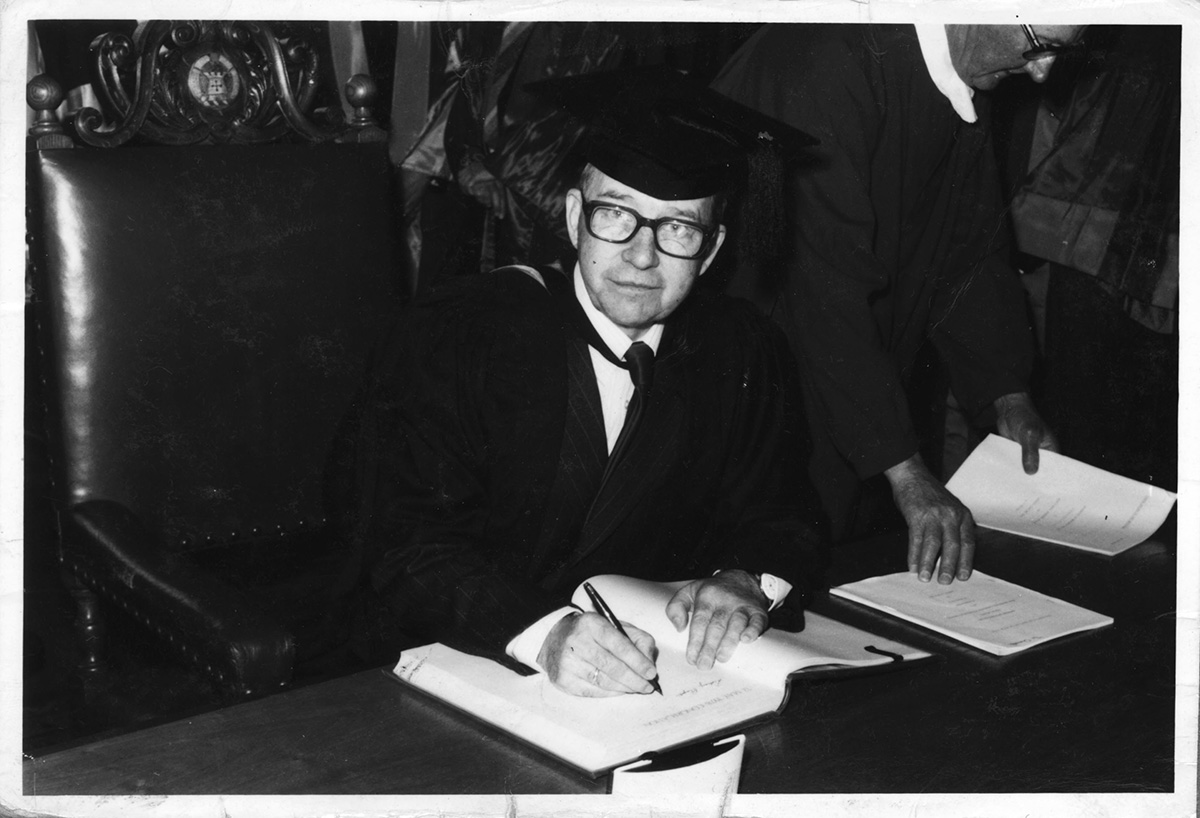
Sid's open heart surgery and its effect on his writing
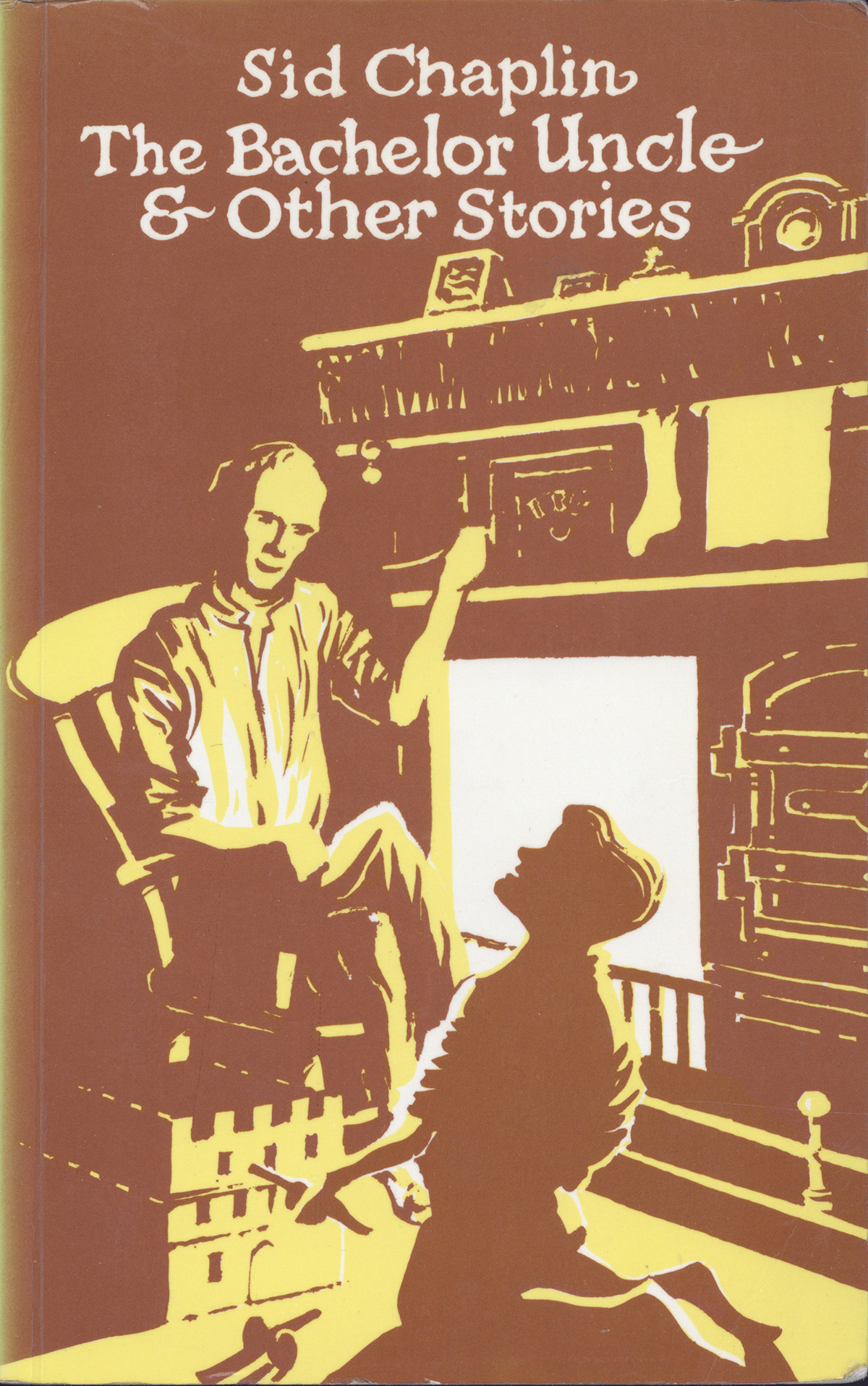
The importance of Sid Chaplin's work to the cultural heritage of the North East
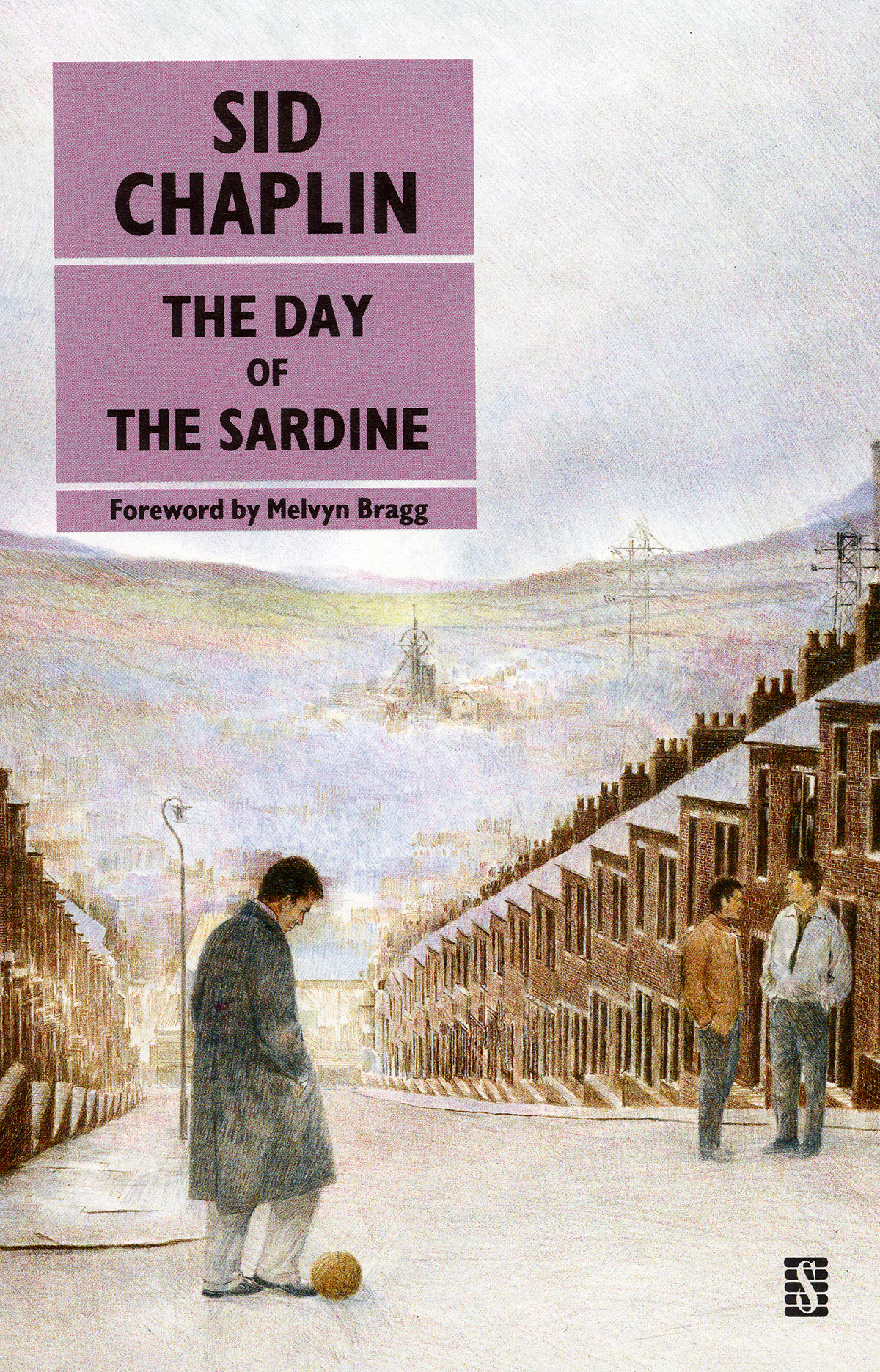
Listen to the full interview
Read the text summary
00:18: Michael begins by describing his father as he knew him. He talks about how his father was very productive during Michael's childhood. Between the time that the family moved to Newcastle and Michael went to university, Sid was involved in writing plays about the Durham miners, worked on multiple novels and short stories and had a full time job as a public relations officer for the Coal Board. However this productivity meant that for most of Michael's early childhood Sid was absent from Michaels life. Despite this, Michael acknowledges his father as a very warm, humorous person, who he enjoyed being around.
05:19: Michael moves on to talk about the time he and his father spent at the cinema. He explains how precious this time was to him, allowing them to have many in-depth discussions about what they had just seen, developing both their abilities as writers, whilst also sharing a love for old comedy.
9:30: Michael follows this by explaining his father's routine of walking round the streets of Newcastle on a Sunday morning. This allowed Sid to talk to the local community and add a depth of reality to his characters by infusing them with the stories he heard on the streets. He then shifts from the research process to the writing one, detailing the way he remembers his father sitting in a fog of smoke at his typewriter listening to jazz. Because of his background in journalism, Sid had an extremely organised approach when constructing a story allowing him to, as Michael calls it, ‘get lost with his characters'.
15:48: He then moves the discussion to the development of the play Close the Coal House Door and the large role theatre and plays had on the family.
21:16: Next Michael focuses on the publication of his father's novel, The Day of the Sardine and how his father and mother were both so anxious about its publication that they took the sleeper train down to London to be there as soon as the reviews were published. He emphasises how much this meant not only to his father, but also to his mother, and goes on to explain her constant support of Sid's work.
23:32: During Sid's childhood, his family did not want him to follow his father into mining. They fostered a culture of storytelling within their household, which had a great effect on Sid's later life. However, his family did not approve of Sid's choice to be a writer.
29:58: The depression in the late 1920's to early 1930's mean that Sid's family spent a lot of time moving from mining village to mining village. Michael cites this experience of moving as nurturing his father's motivations as an adult. After leaving school at fourteen, Sid attempted work at a bakery but after the discovery of a flour allergy forced him to quit, he became an apprentice blacksmith under Alex Wiley. Michael explains Alex was a formative influence on Sid and Sid would spend his wages on buying books from Durham Market. The first book he bought was Resurrection by Leo Tolstoy, which created a lifelong love of Tolstoy.
31:57: Michael explains the impact religion had on his father's life. He highlights the skills Sid developed while lay-preaching and the development of his and his wife's early courtship.
35:23: Michael describes his father's life after the apprenticeship. He discusses the steps Sid took that led him to writing, including his time spent at the pioneering Spennymoore Settlement, Fircroft College and the Bournville factory before the war, which led him back to the North and his writing.
39:52: He then shifts to talk about his father winning the Atlantic Award for Literature in 1947. The award is funded by the Rockefeller foundation and has seminal importance to writers' careers. The £300 prize money allowed Sid to concentrate solely on writing for eighteen months writing works such as The Thin Seam and My Fate Cries Out.
41:52: The Labour government's nationalisation of the mines and the creation of the National Coal board gave Sid the opportunity for a career change where he established himself as a public relations officer working for Coal magazine. Michael conveys the strain this change in career had on the family, followed by the adventure of moving to London. Nevertheless, Sid still felt a draw to the North East and a need to write for himself again so moved the family to Newcastle in the early 1960's. In Newcastle, Sid became synonymous with the literary world of the North East, writing for The Guardian and completing some of his most well know works, The Day of the Sardine and The Watchers and the Watched.
48:00: Sid retired from the Coal Board in 1971. Michael graduating from Cambridge was a big deal for his parents. Sid was proud that his son was getting the education that he was denied. Sid had a heart attack the night before he graduated in 1975. He endured an early attempt at open heart surgery and very nearly died. Following this, Sid's writing was never quite the same as he found it much harder to concentrate. Sid began writing for television, including When the Boat Comes In. In the last years of his life, he wrote stories about the Durham Coal Field of his childhood. Michael remarks that there was a shift in the way his father wrote characters in his later years – they were much darker than those in his earlier stories.
